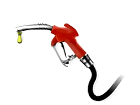NHTSA — Fuel System, Gasoline: Delivery: Hoses, Lines/Piping, And Fittings Problems
10.0
really awful- Crashes / Fires:
- 0 / 1
- Injuries / Deaths:
- 2 / 0
- Average Mileage:
- 38,513 miles
About These NHTSA Complaints:
This data is from the NHTSA — the US gov't agency tasked with vehicle safety. Complaints are spread across multiple & redundant categories, & are not organized by problem.
So how do you find out what problems are occurring? For this NHTSA complaint data, the only way is to read through the comments below. Any duplicates or errors? It's not us.

fuel system problem

A D V E R T I S E M E N T S
- Seattle, WA, USA